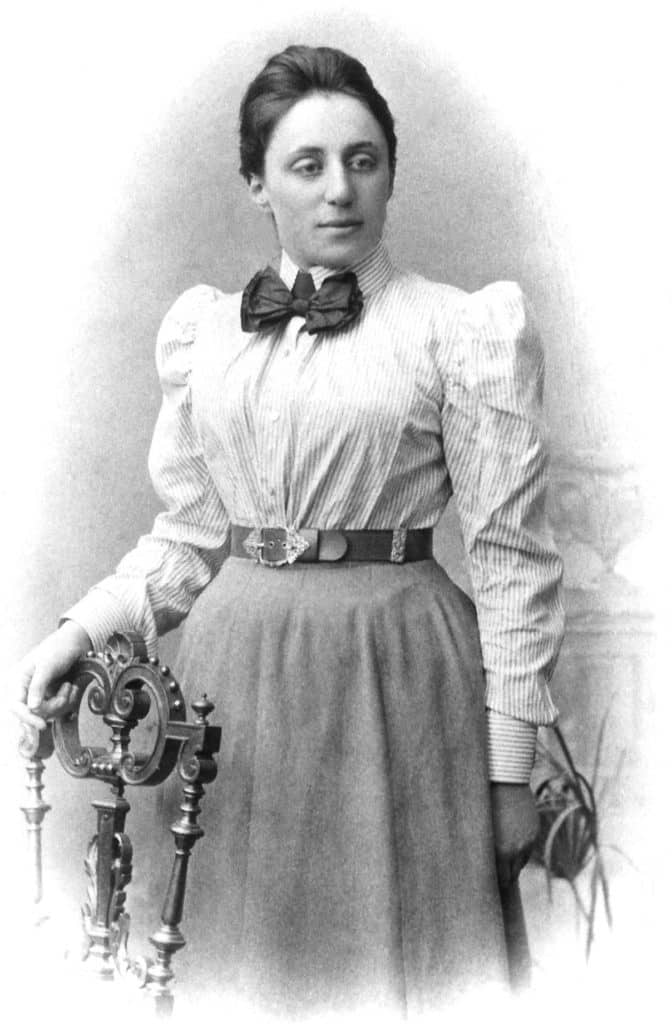
Emmy Noether, 1882-1935
Emmy Noether was born to a Jewish family in Erlangen, Germany, in 1882. Her father was a professor of mathematics at the University of Erlangen. She passed exams in French and English, qualifying her to embark on a teaching career at girls’ schools in Germany. She opted instead to follow her father’s footsteps and study mathematics at the University of Erlangen. At first, she was only allowed to audit classes, due to restrictions placed upon women. Eventually she was able to earn a doctorate in mathematics as Germany loosened its restrictions on women in higher education.
Because of her gender, Emmy was initially unable to get a paid teaching position in mathematics. So, she supervised doctoral students for no pay. The mathematics faculty at the University of Göttingen invited her to join their ranks, but the philosophy faculty blocked her from having a formal position. So, her colleagues arranged for her to teach, still without pay, by listing her courses under the name of a male colleague. Several years later, she was finally able to teach without pay under her own name. Eventually, in 1922 she was awarded a small salary.
Despite these obstacles, Emmy was able to make important contributions to abstract algebra and theoretical physics. She proved two theories, for example, that were fundamental for understanding both general relativity and particle physics. Her career is notable for major contributions in three major areas of mathematics. It’s rare for a person to achieve a major breakthrough in any one area, never mind achieving this in three different areas. Her work is so significant that it is still cited today in each of these domains.
In 1933 the newly installed Nazi government withdrew the right of Jews to hold government positions—which included university faculty positions. Despite her eminence in mathematics, Emmy’s Jewishness meant she was forced out of her university position. Emmy knew that she needed to leave Germany.
Emmy, supported by a special fund for German scholars who became refugees due to the Nazi regime, soon emigrated to the US, where she accepted a position at Bryn Mawr. While at Bryn Mawr, she mentored four women in mathematics as she started this new phase of her life. Unfortunately, she died from surgical complications just two years later.
Just imagine how our preconceptions and negative beliefs about sex and gender can stifle innovations. Similarly, think about the impact of negative beliefs based on a person’s religion, ethnicity, or race. Now add on the problem of turning these negative beliefs into discriminatory policies. The situation gets even worse when we throw on top the power of an autocratic government. If it wasn’t for the courage of Emmy Noether, enabled by crucial allies along the way, critical advances in mathematics and theoretical physics might have taken years or decades to occur. When policies limit who can participate in the intellectual life of a society, innovation suffers. Innovation is the product of thought processes that can’t be restricted to only certain “preferred” categories of people.
* * *
“Fraulein Noether was the most significant mathematical genius thus far produced since the higher education of women began.” – Albert Einstein
This is part of our “Just Imagine” series of occasional posts, inviting you to join us in imagining positive possibilities for a citizen-centered democracy.



